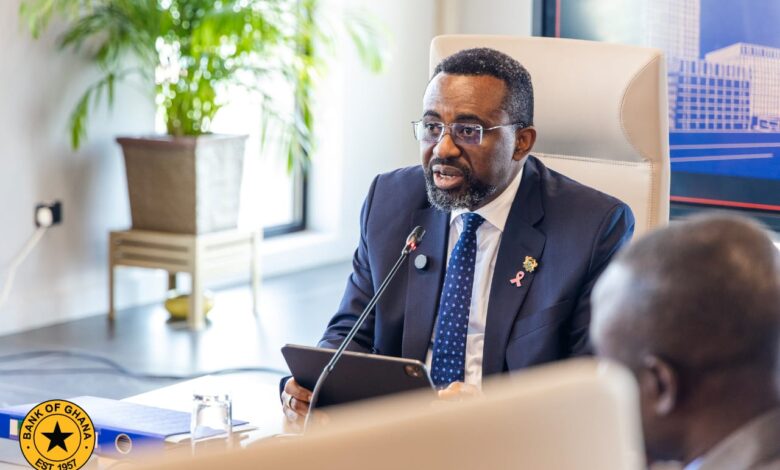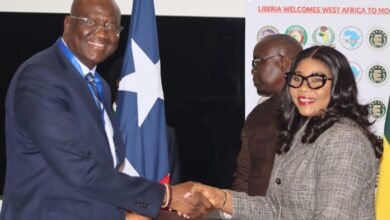Economy Turns Corner As Inflation Falls, Growth Surges – BoG Governor

Governor of the Bank of Ghana, Dr. Johnson Pandit Asiama, has announced a major turnaround in Ghana’s economic fortunes, declaring that the country is entering one of its strongest periods of stability and growth in recent years.
Speaking at the opening of the 127th Monetary Policy Committee (MPC) meetings in Accra, Dr. Asiama said fresh economic data shows Ghana is “in a very different place” compared to a year ago, with inflation easing faster than expected, the cedi remaining resilient, and economic activity strengthening across key sectors.
According to the Governor, headline inflation has dropped to 8.0 percent, with core inflation between 5–7 percent, while inflation expectations remain firmly anchored. He noted that the stability of the cedi through 2025 has been underpinned by renewed market confidence, improved FX market operations, and strong reserve inflows.
Ghana’s gross international reserves now stand at US$11.41 billion—equivalent to 4.8 months of import cover—and are projected to hit 5 months by the end of the year.
Growth Picks Up Strongly
Dr. Asiama highlighted that economic activity is expanding faster and more broadly than projected. The first half of 2025 recorded a 6.3 percent GDP growth rate, driven mainly by strong performances in the services and agriculture sectors. Non-oil GDP rose sharply to 7.8 percent.
High-frequency indicators confirm this progress, with the Composite Index of Economic Activity rising by about 9 percent, while both business and consumer confidence remain upbeat.
These developments, he said, show that the negative output gap is narrowing as the economy transitions from recovery into full expansion.
Foundation Built on Discipline
The Governor attributed the turnaround to consistent fiscal discipline, a steady monetary stance, structural reforms, and improvements in the foreign exchange operations framework. He noted that the 2026 Budget further consolidates these gains by placing job creation and growth at the centre of the government’s next phase of economic transformation.
Inflation is expected to settle between 4–6 percent by the end of the year and stabilise within the target band in 2026, potentially ushering in a multi-year period of price stability.
Risks Still Remain
Despite the positive outlook, Dr. Asiama cautioned that global uncertainties—such as commodity price volatility, geopolitical tensions, and tighter external financing conditions—pose risks to Ghana’s macroeconomic path. Domestically, he pointed to concerns around taxes, utility costs, and credit conditions, which continue to affect businesses.
Key Issues Before the MPC
As the Committee begins its deliberations, the Governor highlighted three critical areas for attention:
1. Disinflation and Real Interest Rates:
With inflation falling faster than projected, real interest rates have risen, creating room for cautious monetary easing without jeopardising the gains.
2. FX Market Reforms and Reserves Strategy:
While the new FX framework has improved transparency, he emphasized the need to educate the public and diversify reserve assets to reduce over-reliance on gold.
3. Financial Sector Stability:
The Governor said the banking sector remains stable but noted that lingering concerns around asset quality and recapitalisation for a few institutions must be resolved to ensure effective credit transmission.
Dr. Asiama concluded by stressing the importance of sustaining stability while supporting growth momentum.
“Our decisions must reinforce confidence, signal predictability, and keep the economy on its path toward higher, job-rich growth,” he told MPC members.
The Committee is expected to announce its policy rate decision at the end of its deliberations.






